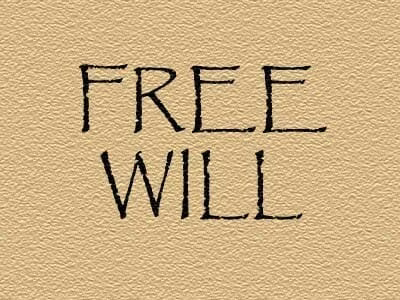Which Free Will Do We Have?

The most significant problem in the timeless free will debate is that people aren’t agreeing on definitions.
So instead of picking a pet definition, and trying to defend it, let’s transparently lay out the options and see where they take us.
Definitions of free will
For any previous willful decision we made, we could have chosen otherwise, i.e., we are not completely constrained by external forces outside our control
We can be presented with options, work out how each option will unfold based on previous experience, and then select the option that will lead to what we most want to happen based on our values and goals
When you are not restricted from doing something that you want to do, and that you normally would be able to do
We have enough freedom, under normal circumstances, to be held morally responsible for our actions
These are all valid definitions of free will, to the extent that they are used by many as the definition.
And we know that any given person, during any given discussion, might agree or disagree that these various types of free will exist. They might even agree or disagree with more than one of them.
The problem arises when Person A is defending Definition X while Person B is arguing against Definition Y.
Analysis
So here’s my take on this.
I’m an incompatibilist and free will skeptic. That means I don’t accept the first definition, but I absolutely accept some of the others.
So the answer to the question,
Do you believe in free will?
…really does require an answer of,
Which kind do you mean?
Compatibilism
Compatibilists come in many flavors, and many of them (including Daniel Dennett) also reject the first definition (could have chosen otherwise) while going on to accept the last one (enough for moral responsibility).
Understanding this mixture is key to understanding the free will debate. If you’re unable to see these various perspectives you’re destined to be a talking head that makes no progress towards increased understanding.
A case for responsibility
Now that I’ve established that there are many ways to see free will, and that people should be willing to have and use various definitions according to context, I’m going to argue for a primary definition.
Moral responsibility.
I believe that the first definition (could have done otherwise) is inexorably tied to the last one (we have enough for moral responsibility). And since we don’t have the ability to do otherwise (because we’re completely constrained by physics) we do not actually have moral responsibility.
Fine.
But there’s a problem. I also believe that a criminal justice system that behaves, to some limited degree, as if we did have enough free will for moral responsibility, is a good thing.
Why the contradiction? Because we’re human, and I am not sure humans are ready to transition to a frame of mind, or to a justice framework, that lacks this core, seemingly innate belief.
Even if we move overwhelmingly towards an understanding that criminals (and heroes) are not responsible for their actions, I think there is some necessary degree of belief in self-authorship that we must hold on to if we want to produce positive changes in behavior.
That won’t always be the case, but it is for now. Let’s philosophically roll with it.
Where does this leave us?
There are lots of different types of free will. We deal with them every day. Do we want to wake up and do a good job at work, or do we want to stay in bed and eat Bon Bons? That’s a choice. It’s practical. It’s real. We experience it.
But if physics really are fully constraining our actions, then we’re just experiencing that choice, not actually making it. That deeply matters for moral responsibility at the philosophical level, but it doesn’t matter at all for whether you get a bonus or not, or if you go to jail for stabbing someone in a bar fight.
Discussing this topic, and others like it, requires an intellectual nimbleness and flexibility that few seem to have. We cannot simply lock onto a single, pet definition and reject others that are used by millions.
But we also cannot accept just any definition because many people believe it.
I believe the answer is to look for context in the discussion. If the conversation is of a practical nature, such as whether someone was bound and gagged, or being blackmailed or extorted, then the philosophical discussion is rather moot.
But if the discussion is about ultimate justification for moral responsibility, then perhaps the fact that you decided to have a bagel instead of cereal for breakfast is not pertinent.
One does not necessarily counter the other, because they’re different types of freedom, in different contexts.
I do believe that we ultimately lack ultimate moral responsibility for any and every action we take, simply because physics has made it so that we could not have done otherwise. And I will strongly push this truth on those who justify cruelty to the poor and criminal based on their poor choices.
But this will not affect my day tomorrow in virtually any way. I will still creatively curse at people who cut me off. I will still try to excel in my work. I will still praise people who do good deeds.
This is not a contradiction as much as it is an acceptance of human life on planet Earth in 2016.